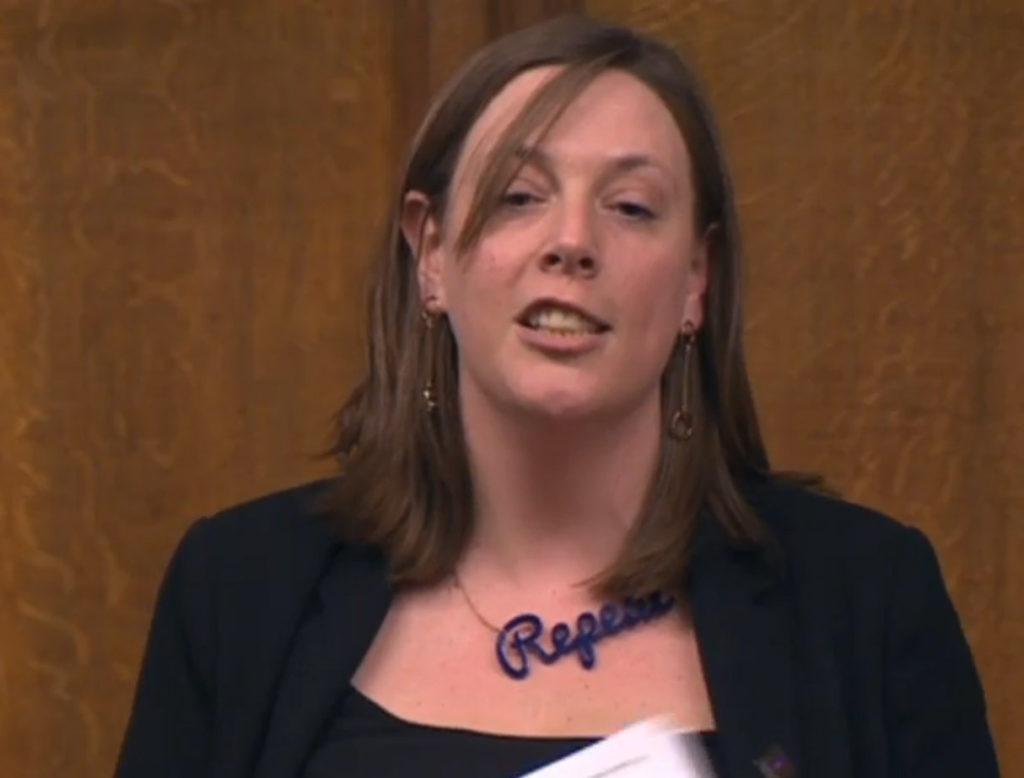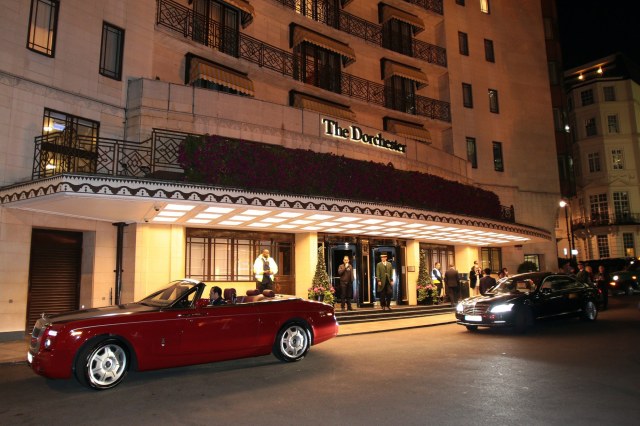The Dorchester Hotel, London, where the Presidents Club dinner takes place. Mark Robert Milan/Getty Images

When the internet began there were numberless predictions of where it might lead. Some people predicted an era of greater information accessibility. Some predicted that this in turn would lead to a time of greater wisdom. When people realised that, other than cat videos, the most popular content on the internet was pornographic, there were some who predicted that the internet would accentuate an era of licentiousness. What very few people predicted was that the internet might have the opposite effect: fuelling instead a new form of puritanism.
This week the Financial Times ran an expose of a charity event that takes place annually at the Dorchester Hotel in the heart of London. The Presidents Club is a male-only evening during which people from the worlds of business and finance, among others, congregate ostensibly to have a good time and raise money for charity. The centrepiece of the evening is a charity auction. There are celebrity hosts and – as is common in charity events which hope to raise a lot of money – plenty of alcohol. But this particular evening appears to have had a reputation for more than usual loucheness. The female staff were encouraged to sign confidentiality agreements and also to dress in a manner that might be alluring to the male attendees.
The details in the FT expose are certainly embarrassing for everyone involved and shocking for many people who were not. It seems that female staff were repeatedly embraced and groped. Though some of the women appeared to understand the nature of the event, and others later in the evening were (according to reports) hired sex-workers, others of the women – including an FT journalist who went undercover at the event – were shocked by the behaviour of the guests. In the days since the expose, not only has the Presidents Club closed, but organisations including Great Ormond Street children’s hospital and the Evelina London Children’s Hospital, which were among past beneficiaries of the evening’s charitable giving, have responded by giving back money raised in the past at the Presidents Club events.
In many ways this is a classic tabloid-style sting. A group of people have behaved badly, been exposed and publicly embarrassed. To that extent the story is in the grand tradition of old-school journalism. But the internet brings several additional things to the table. The first is the swiftness of dissemination. The average circulation of the Financial Times is less than the Daily Express and less than half that of the Daily Star. But as with a story from any other paper, in the era of the internet a story that one newspaper runs – however comparatively small that paper’s circulation might be – can go global immediately. And while in the pre-internet past other media might ignore a rival’s successful splash, today they cannot fail to get in on the action, ensuring that their readers miss no detail of the fray.
The second thing that happens is that media and public figures have to find ways to respond to the most extreme forms of public outrage that emerges online and find ways to satisfy that outrage. In this phase there is almost nothing that can be said that goes too far. Politicians, among others, feel the need not just to respond to the eruption of public anger but to make sure they are left not even a millimetre behind it. To do so would be to risk everything. And so with each pronouncement they tread slightly further than has been trodden before.

On this occasion it transpired that someone who is a non-executive board member at the Department for Education was also one of the men involved in organising the evening. David Meller immediately stood down from this position. Hours later the government spokesperson in the Commons made clear not only the government’s disdain for the event but its condemnation of any and all such behaviour. Yet there was clearly much more outrage to vent about the event. The Labour MP Jess Phillips used the occasion to state that the event had been nothing more than a kind of slave-market in which “women were bought as bait for men”. She went on to ask: “What is the department going to do to make sure that a message is sent that this lad’s culture has no place in our Department for Education and it has no place in our country?”
Similarly the Children and Families Minister, Nadhim Zahawi, turned out also to have attended the event at the Dorchester. He immediately apologised and announced that he had left early after the event left him “extremely uncomfortable”. Distancing himself from the event he announced: “I do unequivocally condemn this behaviour. The [FT] report is truly shocking. I will never attend a men-only function ever.” Here is a stampede that could only happen in the era of the internet. As with previous internet-driven alterations in manners (see this previous column) at times like this it is at least as important to pause and think as it is to vent and to condemn.
One of the principles of a genuine free and liberal society is that – within the boundaries of the law – people sometimes do things that you yourself would not do and of which you may even disapprove. Technology is helping to eradicate this crash-barrier. The age of information allows the gap between private behaviour and public behaviour to narrow more than at any time in history. And this is happening at a moment where we are all in a position of potential public interest, whereas in the past only those with a public profile could have expected it. Add to this the fact that the means to disseminate the failings of others are now in the hands of absolutely everybody else and the power is awesome. We hear a lot about technological disruption. Technological destruction is quite as decisive.
It is not just the revelation of bad behaviour, but the stampede to condemn that is so strong in the internet age. Even if there is no need to condemn someone else’s behaviour there can become – in the midst of the fury – a sort of compulsion to join in. Specifically the compulsion appears to be to condemn it in even more lavish terms than the next person. So, as in the case of the Presidents Club dinner, an event or activity can move from being something that you personally would not like and may even disapprove of into being something ‘disgusting’ and eventually compared to the slave trade or sex trafficking. It is at extremities such as these – whipped along by technology – that our new moralities appear to be made.
Yet why should a minister promise not to go to another ‘all male’ event? Why should an MP demand that ‘lads culture’ has ‘no place in our country’? One may dislike an aspect of that culture or that culture as a whole but to call for its eradication is not a liberal step but a puritanical one. And it is one with inevitable follow-ons. If all-male events are to be condemned then what are we to think of all-male events if they are gay? What about all-female events? Are hen nights always models of decorum? Are the ‘ladies nights’ which go on up and down the country absolute strangers to the objectification of the male form? Should undercover reporters go into these to expose their sexualised nature? Or should it happen only if there are enough ‘powerful’ women in the audience to make the potential power-dichotomy suitably large?
High on moral opprobrium and whipped along by technological change, we are making up new mores and standards at the speed of light. To make them well we should at least remind ourselves of the need to pause.










Join the discussion
Join like minded readers that support our journalism by becoming a paid subscriber
To join the discussion in the comments, become a paid subscriber.
Join like minded readers that support our journalism, read unlimited articles and enjoy other subscriber-only benefits.
Subscribe